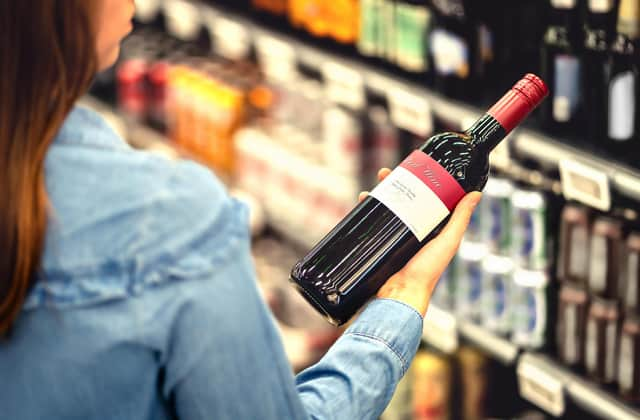Why the pandemic means it is right to further increase minimum pricing of alcohol - Dr Lewis Morrison


Since the policy came into effect on May 1, 2018 I think we have witnessed the visual effects: fewer cheap bottles of cider for sale, no promotions on beers and alcopops and less evidence of binge drinking cheap, high strength alcohol on the streets, with fewer three litre plastic bottles sticking out of litter or recycling bins.
I knew it wouldn’t change the country overnight, but prior to its introduction on average 22 people in Scotland died from alcohol-related causes every week. In the two years that followed the policy’s introduction, there was a reduction in alcohol consumption and decreases in the number of hospital admissions from alcohol-related liver conditions. There was also a 10% decrease in the number of alcohol-specific deaths in 2019.
Advertisement
Hide AdAdvertisement
Hide AdBut we have spent the last 20 months in and out of lockdowns, fighting a global pandemic that has claimed hundreds of thousands of lives – and with that comes the knock-on effects of many people being isolated from their loved ones for months on end. The detrimental impact isolation can have on a person’s mental health can lead to an increase in alcohol consumption. We are yet to see the longer-term impact the pandemic has had on the nation’s attitude towards alcohol – however last year alcohol-specific deaths rose by 17%, and while we cannot say with absolute certainty it is because of the pandemic, we know people’s drinking patterns did change during this time and so can assume it is likely linked.
The minimum price of 50p per unit was always due to be reviewed and I – along with others including Alcohol Focus Scotland (AFS) and Scottish Health Action on Alcohol Problems (SHAAP) – believe now is the time for that review to be taken. Minimum unit pricing has had some positive impacts, but there is so much more still to be done, especially in the wake of the pandemic.
We have come some distance in our efforts to reduce alcohol related harm in Scotland – and the Scottish Government and policy makers should be congratulated. But now is not the time to step back or prevaricate. Indeed – the opposite is true, and we need to pursue our chosen path more robustly. That means increasing MUP as set out by Alcohol Focus Scotland and Scottish Health Action on Alcohol Problems, and pursuing the range of interventions we know can help people avoid falling into damaging patterns of alcohol use.
I have said previously I did not expect changes overnight and that MUP was about long-term change, citing patience to allow it to work – however I had never factored a global pandemic into the situation, and that is why I believe a move to increase the MUP is the right one. This is a public health issue, and with the right attitude and changes in place, I remain positive about what minimum unit pricing will mean for the health of our nation’s future.
Dr Lewis Morrison is the chair of BMA Scotland
